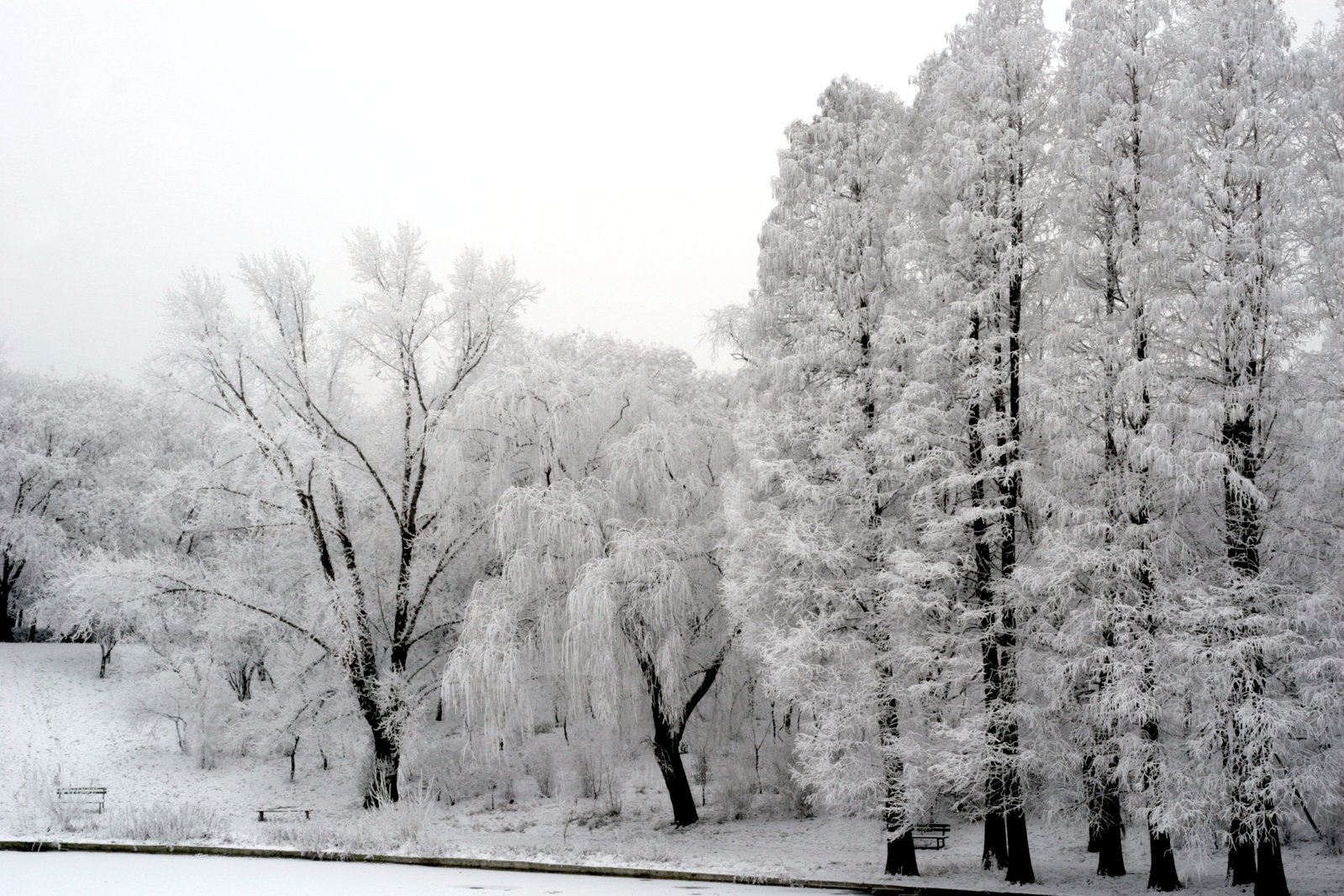The snow sloshed my toes as I pushed my 11-year-old body up the street to another house. Tears began to well up under the surface as my anger at my father grew. ‘How could he be so heartless?’ I thought as I reached into my bag of folded and mostly wet newspapers. “He doesn’t care about me at all,” I said aloud. I sucked my gloved fingers to warm them, forgetting that this action may make them temporarily warmer but would result in colder appendages later.
I hurriedly moved to the last house and threw my final paper. And as I was getting ready to make the journey home the snowplow, whose snow wake I had been avoiding all evening, stole from out of nowhere and blasted me with its man-made avalanche knocking me to the ground, covering me with hard snow rocks. Snow, dirt and now evermore sloppy slush was oozing in each open crevasse of my clothes.
The tears that were under the surface now rushed forward with full force. ‘This is going to be the worst Christmas ever’ I thought, ‘This is not what I signed up for.’ The paper route seemed fun in September when my brother signed up for it, and my parents asked if I wanted to split it with him. I looked forward to having my own money to spend. Now I felt cheated, robbed, swindled. No one told me things would be this hard. Right then and there I decided I was going to quit.
I finished my route with the determination that this would be my last time. I had been telling my father for over a week now. But this was the night, after the snowplow so callously flung its snow pile at me, that. This was the night I was going to be firm.
“You made a commitment, remember?” he reminded “You committed to 1 year.” I begrudgingly acknowledged that commitment. “I haven’t always had someone there to make me keep my commitments,” he counseled, “and the times I chose to shirk my duties are some of the biggest regrets I have.” I could see I was not going to win this fight. “You see, while I am in charge anyway, I won’t allow you to make the same mistake. Believe me; someday you will thank me.”
What I was yet to find out was that there were a lot of great things about being a paperboy. Yes the money, however never again in my life would I work so hard for so little. But I would learn to love the people I served. And I would learn to enjoy the sights and sounds of the weekend mornings, especially at Christmas Time.
One of the best experiences anyone can have is to be the first person to make tracks in the snow just after a storm. For most people that doesn’t happen very often, but for anyone obligated to work early morning hours being that first pioneer to tread across the snow-covered roads can be invigorating.
I have known a few times when absolute peace is in the world that would come close to when I would deliver papers on a weekend morning right after a snowfall. Often there would be just a small flurry of snow still falling. And the trees would be enveloped with a white carpet spread out by nature’s gentle hand. Even as a young 12-year old I could grasp just how beautiful this world could be.
Maybe I am naive, but this peace is the same peace many are searching for throughout their lives. It is the peace that people pay therapists, yoga instructors, faith healers, and countless other sources. People search this peace out in books and movies and music. But His peace is sometimes found in the quiet places of the soul.
It is in those places that I begin to understand the Atonement of Jesus Christ. That is the real peace I have found.
Still, still, still,
One can hear the falling snow.
For all is hushed,
The world is sleeping,
Holy Star its vigil keeping.
Still, still, still,
One can hear the falling snow.
The message that was given to Shepard’s outside of Bethlehem “…on earth peace, goodwill toward men.” And many of us, I included, often justify our indignation because the other side is worse. And is the adult equivalent of the worst excuse I would give my parents when caught fighting, “he started it” is quite the hollow reason for contention.
Throughout the year we spend each week in the grind of simply living. And have been given Sunday, or the Sabbath day as a respite. It also gives us a chance to reset our thinking and actions. Only to have struggled with whatever caused our lives trouble the following week. Over time we learn that yes we make mistakes during the week, but the Sabbath gives us the strength to change, slowly, over time. We are constantly correcting and adjusting, that’s how we grow.
In some way, the Christmas season can act for our year the way the sabbath day acts for our week. We can learn to do better, see more, feel more, and try to make our world a little better by serving others and sharing a love for our family and friends. This kind of truce can happen if we let it.
Sleep, sleep, sleep,
‘Tis the eve of our Savior’s birth.
The night is peaceful all around you,
Close your eyes,
Let sleep surround you.
Sleep, sleep, sleep,
‘Tis the eve of our Savior’s birth.
During World War I, on and around Christmas Day 1914, the sounds of rifles firing and shells exploding faded in some places along the Western Front in favor of holiday celebrations in the trenches and gestures of goodwill between enemies.
Starting on Christmas Eve, many German and British troops sang Christmas carols to each other across the lines, and at certain points, the Allied soldiers even heard brass bands joining the Germans in their joyous singing.
At the first light of dawn on Christmas Day, some German soldiers emerged from their trenches and approached the Allied lines across no-man’s-land, calling out “Merry Christmas” in their enemies’ native tongues. At first, the Allied soldiers feared it was a trick, but seeing the Germans unarmed they climbed out of their trenches and shook hands with the enemy soldiers. The men exchanged presents of cigarettes and plum puddings and sang carols and songs. There was even a documented case of soldiers from opposing sides playing a good-natured game of soccer.
Some soldiers used this short-lived ceasefire for a more somber task: the retrieval of the bodies of fellow combatants who had fallen within the no-man’s land between the lines.
During World War I, the soldiers on the Western Front did not expect to celebrate on the battlefield, but even a world war could not destroy the Christmas spirit.
Our day has nothing on what these men were going through. There is a reason it was called the “Great War.” In some of humanities lowest points, the spirit of Christmas can rise again and again.
Christmas Eve in 1944, the Battle of the Bulge is interrupted by a little-known truce deep in the Ardennes Forest. Four German soldiers and three American soldiers shared a cottage and a Christmas Eve meal, thanks to the bravery of one German woman.
“It is the Holy Night, and there will be no shooting here,” she reportedly told them.
Elisabeth Vincken and her 12-year-old son, Fritz, had been staying in the cottage near the German-Belgian border. They were looking for safety, but now the Battle of the Bulge was raging all around them.
On Christmas Eve, they heard an unexpected knock on their door.
They were scared, of course. Who could it be? Elisabeth carefully opened the door, only to find two men and another lying wounded in the snow. They were American soldiers—not something Elisabeth would have wanted to find! The penalty for harboring Americans was death. But the Americans didn’t try to force their way into the cabin. They just “stood there,” as Fritz later said, “and asked with their eyes.”
What mother could resist? Those soldiers were so young; they were practically kids. “And that was the way Mother began to treat them,” Fritz wrote. The Americans had been lost, but now they were invited into the warm cottage. It was awkward at first, but the German mother and the American soldiers found that they could communicate in French.
Elisabeth and Fritz had been fattening a rooster, hoping that Fritz’s father would return. Now Fritz was sent to prepare the rooster. It was needed for dinner.
Just then, another knock came at the door. Four German soldiers stood there; they also needed shelter from the cold. Could they come in?
Elisabeth had to have been frightened. What would the Germans do when they discovered the Americans? But Elisabeth did what she had to do: She looked the Germans determinedly in the eye, inviting them in—but also warning them about what they would find inside. “You could be my sons,” she told the Germans, “and so could those in there — a boy with a gunshot wound, fighting for his life. His two friends, lost like you and just as hungry and exhausted as you are. This one night, this Christmas night, let us forget about killing.”
The Germans left their weapons outside. Elisabeth retrieved the American weapons and left them outside, too.
The room was tense—at first. But then the mood shifted. One of the German soldiers had some medical training, and he began tending to the wounded American. Another produced a bottle of wine and some rye bread. As they sat down to dinner, Elisabeth said grace. “I noticed that there were tears in her eyes,” Fritz later wrote, “as she said the old, familiar words, ‘Komm, Herr Jesus. Be our guest. And as I looked around the table, I saw tears, too, in the eyes of the battle-weary soldiers . . . .”
The goodwill persisted into the morning. The men awoke, exchanged Christmas greetings, then worked together to build a stretcher for the wounded American. After breakfast, the Germans pointed the American soldiers in the right direction so they could find their unit. Then the two sides departed, each in a different direction.
The truce was over, but nothing could erase the hours of friendship that had existed in the midst of the horrific Battle of the Bulge. “God was at our table that night,” Elisabeth would say.
(Story from https://www.history.com/topics/world-war-i/christmas-truce-of-1914 )
Christmas is a time to lay down our weapons of war. To reach a hand to our enemies and follow the example of Jesus Christ. It’s hard to do. Nothing worth doing is easy. It may mean we have to give up our pride, or our hurt, or whatever is keeping us from forgiving others. But it must be done year after year and Christmas Time is our catalyst each year to change our hearts.
Figuratively, the snow falling to the ground and covering the earth and all of flora and fauna around is like having a clean slate, in preparation for the coming spring when life will once again burst forth. Sometimes the snow can be violent and devastating, especially when thrown at you by a rushing snowplow. But it can also be quiet and peaceful and open up your soul to greater stimulus. That peace is not exclusive to snow, nor is the Spirit of Christ and the magic of this season.
Dream, dream, dream,
Of the joyous day to come.
While guardian angels without number,
Watch you as you sweetly slumber.
Dream, dream, dream,
Of the joyous day to come.

